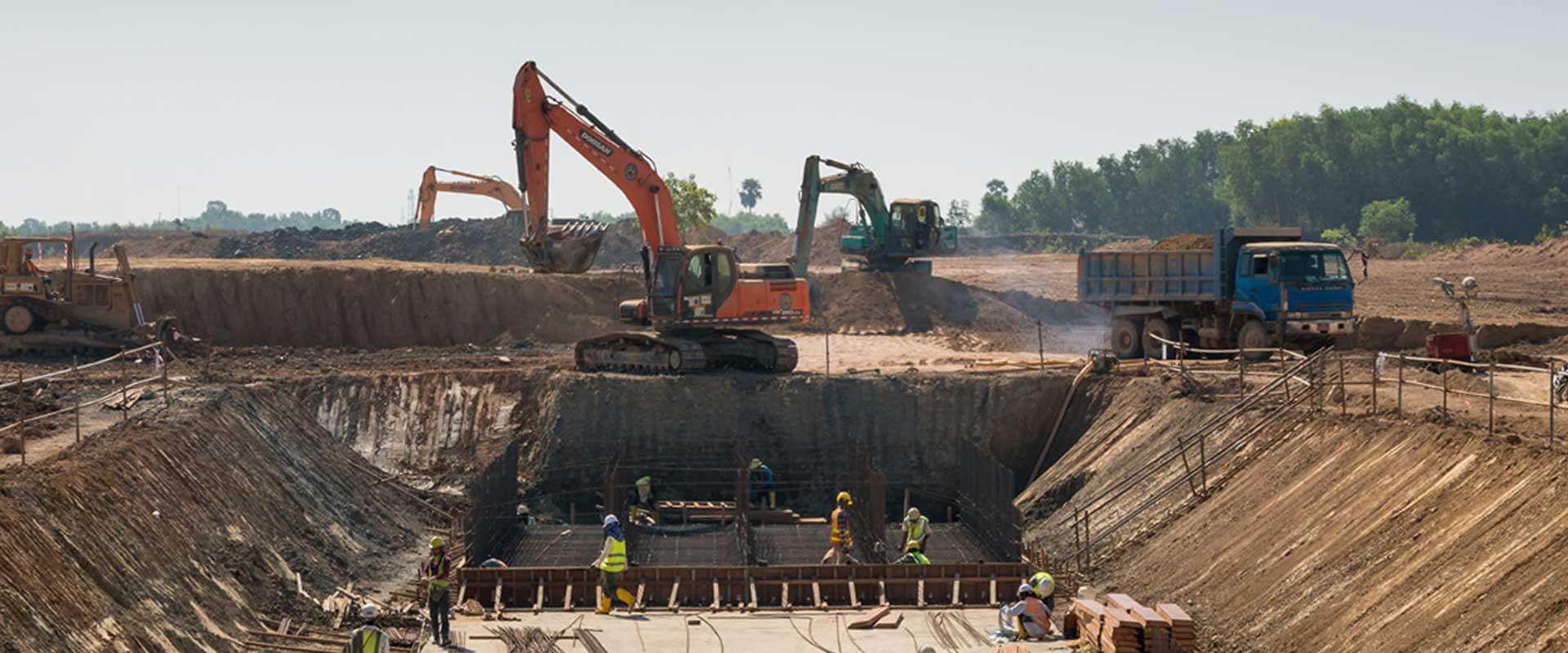
Construction Services
Civil construction is the creating of infrastructure involving anything that has to do with water, earth, or transportation. It is a branch of the civil engineering field that focuses on the design, maintenance, and construction of the built environment, such as roads, buildings, bridges, airports, railways, water reservoirs, sewer systems, tunnels, dams and more.
The civil construction industry helps shape the world around us and create much of the infrastructure that we rely on in our daily lives. This infrastructure includes everything from massive bridges and national roads to wastewater treatment centres and dams. The civil sector has a hand in most of our essential building projects and infrastructure development.
In this article, we will cover the basics of civil construction and explore how it benefits society in so many ways. Here is what you should know about civil construction:
What is Civil Construction?
Civil engineering is the planning, designing, and building of roads, bridges, harbours, waterways, sewage systems and public buildings. Civil construction is usually classified under the broad umbrella of civil engineering, rather than its own branch of construction. This is because every civil engineering project will include a multitude of specialised engineers and workers to plan and execute their designs.
Civil construction is most commonly involved with the maintenance and development of the naturally and physically built environment. However, they do more than build infrastructure. Civil construction is also responsible for the management of existing environments, like water reservoirs, mountain ridges, rivers, and forests. Contractors bid on different civil projects by offering their expertise and services at affordable rates.
The Role of Civil Engineers
Civil engineers are the ones in charge of overseeing large civil construction projects. Among many duties, they are responsible for turning a project design into a built reality. Civil engineers will also put their project designs and plans through rigorous testing once the construction is completed, and before it is approved for public use.
These civil engineers will oversee every stage of a civil project, from initial drawings and choosing materials to finding constructions workers and assessing the infrastructure’s impact on the surrounding environment. This may include site preparation, such as excavation, land grading and earth moving. They must ensure every civil project they manage is completed safely, economically, and environmentally stably.
Work Done by the Civil Construction Industry
The civil construction industry works on a variety of tasks within the larger civil engineering space, which includes building, designing, managing, and maintaining public infrastructure and the built environment. Civil construction makes our lives easier by helping us get clean water, drive on safe roads, cross sturdy bridges, get rid of our waste and maintain our cities and public spaces.
Common work includes:
- Adhering to regulations and guidelines when planning, creating, and maintaining infrastructure,
- Tendering contracts and hiring contractors,
- Measuring cost estimates and managing contracts,
- Creating infrastructure plans and getting them approved by necessary authorities,
- Studying, evaluating, and investigating the land of potential building sites,
- Liaising with government authorities, clients, and other civil engineering professionals,
- Monitoring and supervising the building of the infrastructure and ensuring the construction designs and plans are followed carefully.
The Types of Projects in Civil Construction
Civil construction project will often involve infrastructure like government buildings, public libraries, roadways, and airports. However, they assist on many other kinds of projects that can benefit from the design experience and construction capabilities of these civil specialists.
Some of the larger projects that are handled by the civil sector can include:
- Earthwork projects, such as capping landfills, building levies and reshaping flood-prone areas
- Bridge construction and maintenance, from basic railway crossings to massive bridges
- Canals and river stabilisation or widening projects
- Treatment plants, holding tanks, settlement ponds and other important processing structures
- Railroad construction and laying tracks for light rail, high speed, and streetcar systems
- Airports, ports, harbours and other major transportation hubs
- Dams, lakes and reservoir tanks, including systems that are designed for power generation
- Roadways, ranging from basic residential streets and pavements to tunnels and national highways
The Future of Civil Construction
The modern world is in a constant state of evolution. New and better ways of designing and building public infrastructure are being discovered daily. It is expected that the fields of civil engineering and civil construction will have their demand continue to grow in the coming years, as the naturally and physically built environment around us continues to develop.
For world-class civil engineering services, look no further than our expert civil construction and maintenance solutions. Contact us today and learn more about how we can help you build the environment around you!

 91 9560416334
91 9560416334